What Should You Expect from a Bonafide Police Dog Instructor?
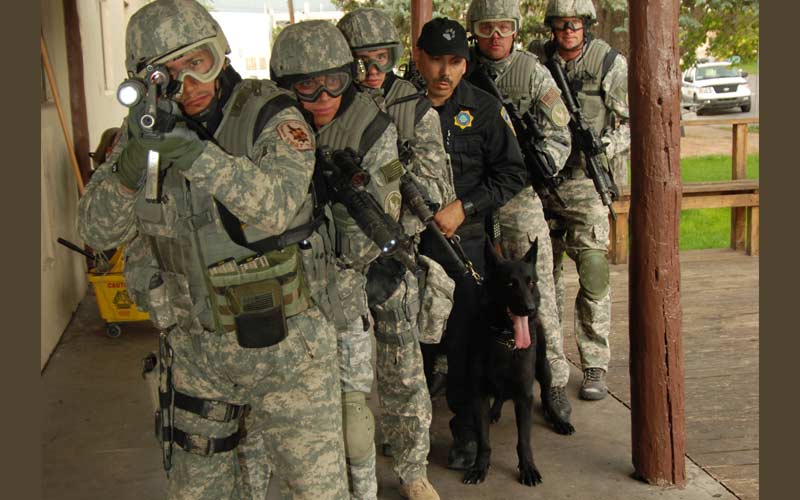
Foreword by Ed Frawley
I met Kevin Sheldahl in 1984 at a police K-9 school in Kansas. We have been good friends ever since. Kevin is a retired police K-9 handler. He became a K-9 Instructor and an International Police Dog Judge. Kevin's company K-9 Services runs 6-week police K-9 courses in which police officers learn how to become new K-9 handlers. To date, he has run 70 6-week courses and trained over 1,200 K-9 handlers. I don't know of another dog trainer that has Kevin's experience and knowledge of police service dogs training.
In law enforcement there is a pretty classic view of what a instructor is, what a qualified instructor is, and what a subject matter expert is, and then beyond that is an expert witness. Yet, in police dog training because there is not unified national standard as to what qualifies a police dog instructor we have seen the inundation of those I see as shingle hangers. People of dubious qualification and integrity flowing into the police dog handler instruction business.
So, lets define what a police instructor is all about. In law enforcement there is always a structure for teaching subjects of all nature. But, among high risk areas the criteria tends to be a bit more difficult to attain.
The first level, whether it be K-9 or SWAT or Crisis Negotiations, or Crisis Interditcion to name a few is that of a certified officer. This means the officer has attained a basic certification through a training course, taken an examination/s often both a written (knowledge) and a didactic (performance) exam. Depending on the subject matter there may be pre requisites for such courses, like minimum time as a sworn/certified law officer or prerequisite courses. There may also be pre tests such as a minimum qualifying score with weapons to enter a SWAT course.
Once the course is successfully completed an interested applicant can apply to become an instructor. In some cases this is merely one more course and is done back to back with the basic certification level. In simplistic courses like electronic discharge weapons or oleo-resin capsicum delivery devices this is common. But, for high risk specialties like K-9 and SWAT there is most often a time in grade approach. Such as, you must have been a K-9 handler for 3 years in any K-9 specialty such as narcotics detection, SWAT K-9, Patrol K-9, etc. In addition a basic police instructor or equivalent type course is most often a prerequisite.
Notice that the only somewhat hidden training requirement is that you have successfully repeated certification with you canine partner a few times.
In the Police K-9 world, admission to a instructor course follows qualifying in the above criteria. Then attendance at a instructor course and successful testing in both skills and knowledge. Now these things may be accomplished in a variety of means, a multi week course, an apprentice program, or by resume/reputation, and often written/performance examinations. What skills and knowledge? Of course basic police dog training and behavior, but in addition, legal requirements and ramifications, policy and industry norms, record keeping and report writing skills, not to mention the big one. Deployment strategies and safety, something a book or a friend cannot instill in you. You must experience these things to be an exceptional teacher in these areas. Today, in most law enforcement academies scenario based instruction and evaluation has become front and center of programs. The evaluation in not simply about individualized skills but the ability to put them together in a functional and defensible manner. This takes law enforcement experience.
In K-9 specialties we usually acknowledge the following levels of proficiency:
- Handler, the operator level of training where the handler learns, under the tutelage of one or more people proficient in dog training and law enforcement training how to manage a police service dog. This is the boots on the ground level of the work and many handlers remain at this point, honing their deployment skills extensively, adding tactics, and SWAT operations to their repertoire. Many become especially adept at search and seizure and use of force given street conditions.
- Departmental Instructor, here we have a level of training and experience in the law enforcement arena where diagnosing behavioral/performance problems and approaching solutions as well as developing/managing departmental training become part of these individuals responsibilities. Usually then will have earned an Instructor Certificate in their K-9 disciplines as well as a Basic Instructor, or Instructor Development course/certificate will have been earned.
- School or Academy Instructor, this individual has significant experience doing the jobs in A & B as well as having organized training for new handlers, instructors, and problem solved in the context of group training from ground zero to deployment ready.
- Judge/ or Certifying Official, this individual has shown significant knowledge and experience in the performance of their K=9 related specialties to be part of a program documenting proficiency. Often the path to such positions may come following Instructor Certification or after significant Handler experience depending on the program/institution they represent.
- Teaching Judge (Train the trainer, Master Trainer, Program Manager, quality control, & program integrity, are all terms that describe this individuals responsibilities). After considerable experience in all the above arenas (A,B,C,D) an individual may have this (or similar designation) conferred upon them. This is the pinnacle of the K-9 communities contributors to the integrety, development, and management of the skills and standards their organization represent.
Much of what is listed here is outside the experiences of a dog trainer.
Now. please do not think that this is a piece all about how sport dog trainers have no place in law enforcement training. I am a firm believer that our finest trainers are those that have either a sport back ground or have spent significant time with those who are dedicated to dogsports. But all to often they do not know the pieces they are missing. I for one began as a civilian dog trainer. I had experience working under some very fine law enfrocement K-9 instructors/handlers. I also had both positive and negative successes as a sport dog participant. What I didn't know, was that I hadn't the insight and intuition, and tactical experience necessary to convey to my students what street deployment was all about. I also had no idea what the court/legal side of this endeavor was all about. There is no substitute for sitting in a suppression hearing or a criminal case and testifying about you and your dog's performance, let alone a civil action against YOU! This must be part of the education a handler will receive.
A structured curriculum, performance and proficiency testing, written examinations all must be part of a handler's education. Just going to a dog trained does not fulfill such needs.
What is the Instructor's chain of certification? All successful Instructors, Judges, Trainers, Master Trainers, Master Instructors, etc. will be able to show a chain of certification through one or more entities, national programs, state programs, of federal entities, grass roots programs etc. Nothing else suffices, period!
If someone hangs their shingle as a Dentist, there is the asumption that they are credentialed. In the K-9 specialty it is not so. Buyer beware and research where and from whom you receive education. It can and will mean the difference between a successful, proficient and defensible program and failure.




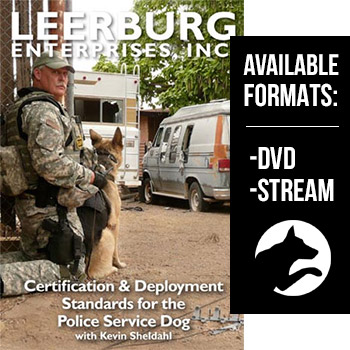
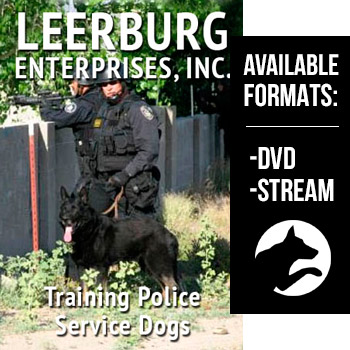
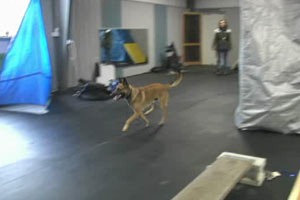

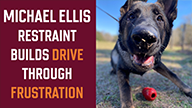
Ask Cindy.